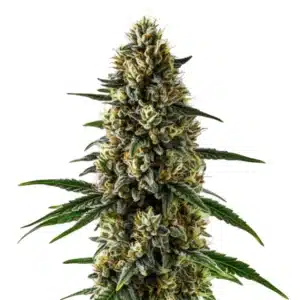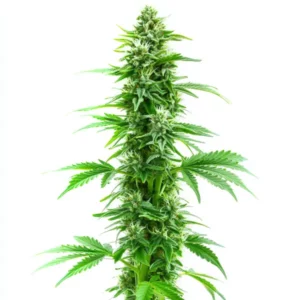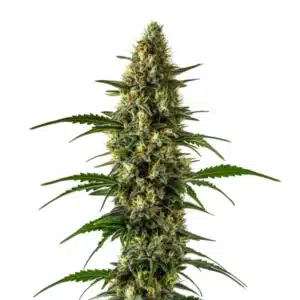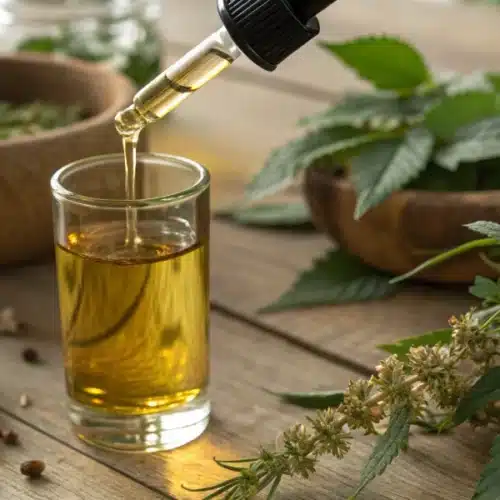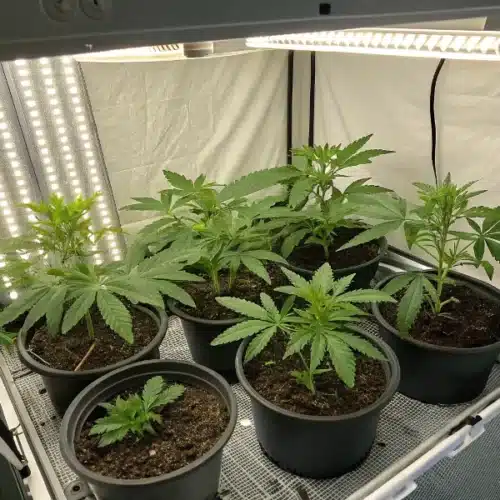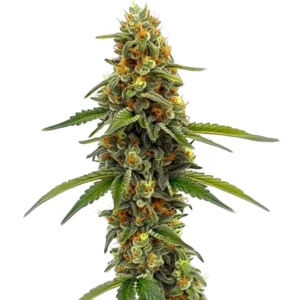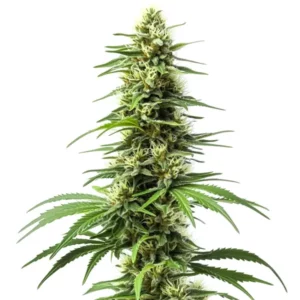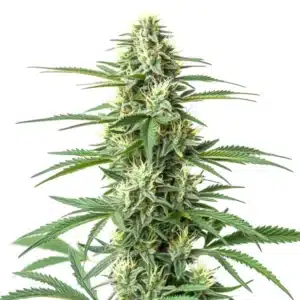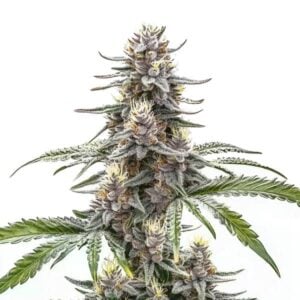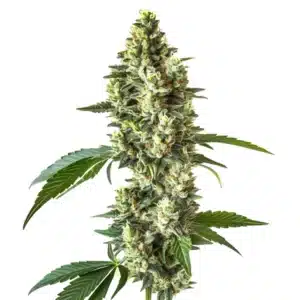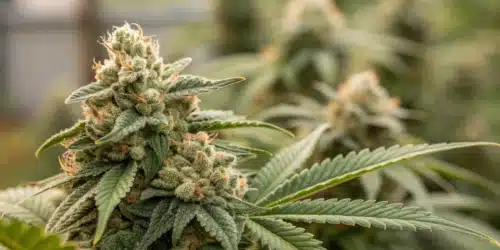Antibiotics and cannabis are two substances that often intersect in discussions about health and wellness. While antibiotics are essential for treating bacterial infections, cannabis has become widely used for its therapeutic and recreational benefits. However, the interaction between these two substances raises questions. Can cannabis impact the effectiveness of antibiotics? Are there risks involved in combining the two? Here’s what you need to know.
Can You Use Cannabis While Taking Antibiotics?
The simple answer is that it depends on the specific antibiotic and the individual’s physiology. Cannabis and antibiotics are metabolized by the liver, and this shared metabolic pathway can influence how the body processes both substances.
Cannabis contains cannabinoids like THC and CBD, which are metabolized by liver enzymes, particularly those in the cytochrome P450 family. Many antibiotics are also processed by these enzymes. When cannabis and antibiotics compete for the same metabolic pathways, it can slow down the breakdown of one or both substances, potentially altering their effects.
For some individuals, this interaction may lead to stronger side effects or prolonged activity of the antibiotic. In other cases, it may reduce the effectiveness of the medication. Consulting with a healthcare provider is essential if you plan to use cannabis while on antibiotics.
How Cannabis Interacts with Antibiotics
Cannabis can affect how the body absorbs and metabolizes antibiotics. THC and CBD, the primary cannabinoids in cannabis, may either enhance or inhibit the activity of liver enzymes that process medications. This can lead to increased drug levels in the bloodstream, which might amplify side effects like nausea or dizziness.
Moreover, some antibiotics, such as those in the macrolide family, are more likely to interact with cannabis. These medications require precise dosing to work effectively, and any interference from cannabis could compromise their performance. Awareness of these interactions is key to ensuring both substances work safely together.
Promos & Deals
Potential Risks of Combining Antibiotics and Cannabis
Mixing antibiotics and cannabis isn’t inherently dangerous, but it does carry potential risks that should be considered. Knowing these risks can help you make informed decisions about their simultaneous use.

Effects on Antibiotic Effectiveness
One significant concern is whether cannabis reduces the effectiveness of antibiotics. If cannabis interferes with how the liver processes the medication, it may prevent the antibiotic from reaching therapeutic levels. This could lead to prolonged infections or antibiotic resistance, especially if the medication doesn’t fully eradicate the bacteria.
To minimize this risk, it’s essential to follow the prescribed dosage and timing for your antibiotics. Avoid consuming large amounts of cannabis, as this increases the likelihood of metabolic interference.
Increased Side Effects from Antibiotics
Combining cannabis with antibiotics may intensify certain side effects. For example, antibiotics like metronidazole and tinidazole can cause nausea, dizziness, or fatigue. When cannabis is added to the mix, these symptoms may become more pronounced, making it difficult to go about daily activities.
Additionally, some individuals may experience heightened sensitivity to alcohol-like effects, as both cannabis and certain antibiotics can impair coordination and focus. Using cannabis in moderation can help mitigate these risks.
Impact on the Immune System
Cannabis has complex effects on the immune system. While it can reduce inflammation and provide pain relief, some studies suggest that heavy cannabis use may suppress certain immune responses. This could be counterproductive when taking antibiotics, as a strong immune system is critical for fighting infections.
Balancing cannabis use with the body’s natural healing processes is essential during antibiotic treatment. Limiting consumption and prioritizing rest and hydration can support recovery.

Medical Insights on Antibiotics and Cannabis
Scientific research on the interaction between antibiotics and cannabis is limited but growing. Emerging studies shed light on how these substances interact and their potential applications.
Scientific Studies on Cannabis and Antibiotic Interactions
Recent studies suggest that cannabinoids may have antibacterial properties. For instance, CBD has shown promise in laboratory settings for combating certain drug-resistant bacteria. While these findings are preliminary, they indicate that cannabis compounds could complement antibiotics in specific scenarios.
However, most of this research is still in its early stages. Clinical trials are needed to determine how cannabis might be integrated into infection treatment protocols. Until then, caution is advised when combining cannabis with antibiotics.
Cannabinoids in Fighting Infections
Cannabinoids like CBD and THC have anti-inflammatory and pain-relieving properties, which can support overall comfort during illness. Some research suggests that cannabinoids may directly inhibit bacterial growth, but these effects are strain-specific and not a replacement for antibiotics.
Using cannabis alongside antibiotics may provide symptomatic relief, but it should not be seen as a standalone treatment. Always prioritize medical advice and adhere to prescribed antibiotics.
When to Avoid Cannabis While Taking Antibiotics
There are specific circumstances when it’s best to avoid using cannabis while on antibiotics. These situations generally depend on the type of antibiotic prescribed, the individual’s health condition, and how the body reacts to both substances.
Specific Antibiotics That May Interact with Cannabis
Some antibiotics are more likely to interact with cannabis due to their reliance on liver enzymes for metabolism. For example:
- Macrolides (e.g., erythromycin, azithromycin): These antibiotics are metabolized by the cytochrome P450 enzyme system, the same pathway that processes THC and CBD. Combining these substances may slow drug metabolism, increasing side effects.
- Metronidazole and Tinidazole: These antibiotics can cause nausea, dizziness, and other side effects that may be amplified when cannabis is used simultaneously.
- Fluoroquinolones (e.g., ciprofloxacin): This class of antibiotics can affect the central nervous system. Adding cannabis to the mix could enhance these effects, leading to impaired coordination or heightened anxiety.
Consult with your healthcare provider to determine if your prescribed antibiotic is safe to use alongside cannabis. If necessary, pause cannabis use until the treatment is complete.
Situations Where Cannabis Use Should Be Paused
There are times when avoiding cannabis entirely is the best choice during antibiotic treatment. These situations include:
- Severe Infections: When fighting a serious bacterial infection, it’s important to prioritize the effectiveness of the antibiotic. Cannabis use could interfere with drug metabolism or weaken the immune response.
- Pre-existing Conditions: Individuals with liver or kidney issues may have difficulty processing both antibiotics and cannabis. Adding cannabis could increase the risk of side effects or complications.
- High Dosage Antibiotic Treatments: High doses of antibiotics place additional strain on the liver. Cannabis use could exacerbate this, leading to reduced medication efficacy or prolonged recovery.
Temporary cessation of cannabis use can ensure the antibiotic works effectively and allows your body to recover more efficiently.
Using Cannabis Responsibly with Antibiotics
For those who wish to continue using cannabis while on antibiotics, taking a cautious and informed approach is essential. By following these guidelines, you can minimize risks and support your overall health.
How to Minimize Risks When Combining Cannabis and Antibiotics
- Start with Low Doses: If you choose to use cannabis during antibiotic treatment, begin with a low dose to gauge your body’s reaction. Avoid heavy consumption, as it increases the likelihood of interactions.
- Choose the Right Products: Opt for cannabis strains or products with balanced THC and CBD levels. CBD-dominant products may provide therapeutic benefits without the psychoactive effects of THC, reducing the risk of unwanted side effects.
- Space Out Consumption: Allow several hours between taking your antibiotic and using cannabis. This reduces the chance of both substances competing for the same metabolic pathways.
- Stay Hydrated and Rested: Proper hydration and rest are vital for recovery. Cannabis can sometimes cause dehydration, so drink plenty of water to support your body during treatment.
Consulting Your Doctor Before Mixing Cannabis and Medications
Open communication with your healthcare provider is critical when combining cannabis and antibiotics. Share details about your cannabis use, including frequency, dosage, and product type. This helps your doctor assess potential interactions and adjust your treatment plan if needed.
If you’re hesitant to discuss cannabis with your doctor, consider seeking advice from a medical professional who specializes in cannabis use. They can provide tailored guidance and ensure your safety during treatment.
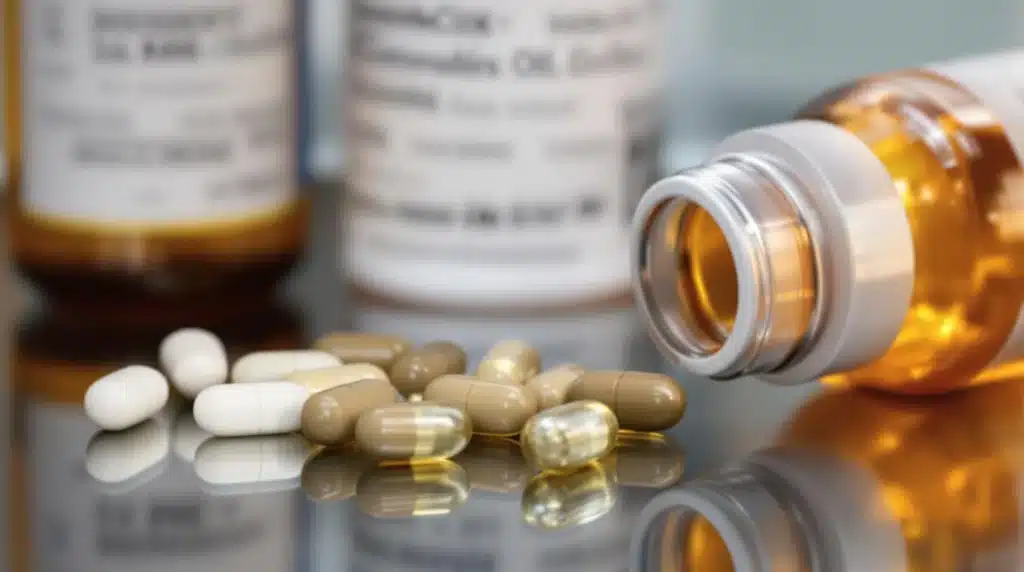
FAQs About Antibiotics and Cannabis
Can Cannabis Reduce the Effectiveness of Antibiotics?
In some cases, cannabis may interfere with how antibiotics are metabolized, reducing their effectiveness. This is especially true for antibiotics that rely on the cytochrome P450 enzyme system. Spacing out cannabis use and adhering to prescribed antibiotic dosages can help mitigate this risk.
Are There Antibiotics That Are Safe to Use with Cannabis?
Many antibiotics are safe to use with cannabis, but it depends on the individual and the specific medication. Penicillins and cephalosporins, for example, are less likely to interact with cannabis. Always consult your doctor to confirm compatibility.
How Long Should You Wait After Taking Antibiotics to Use Cannabis?
It’s generally recommended to wait a few hours after taking your antibiotic before using cannabis. This reduces the likelihood of metabolic interference and allows the medication to take effect without disruption.


